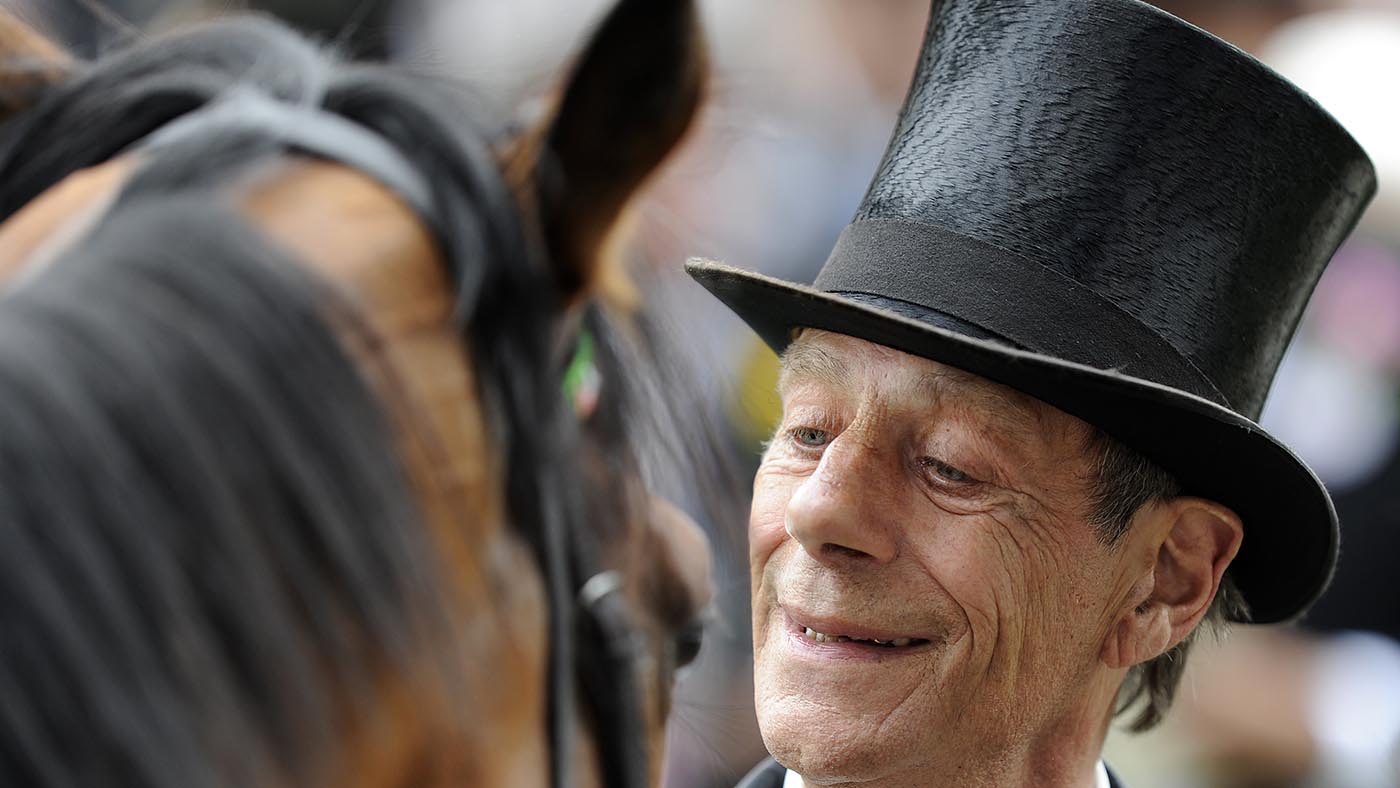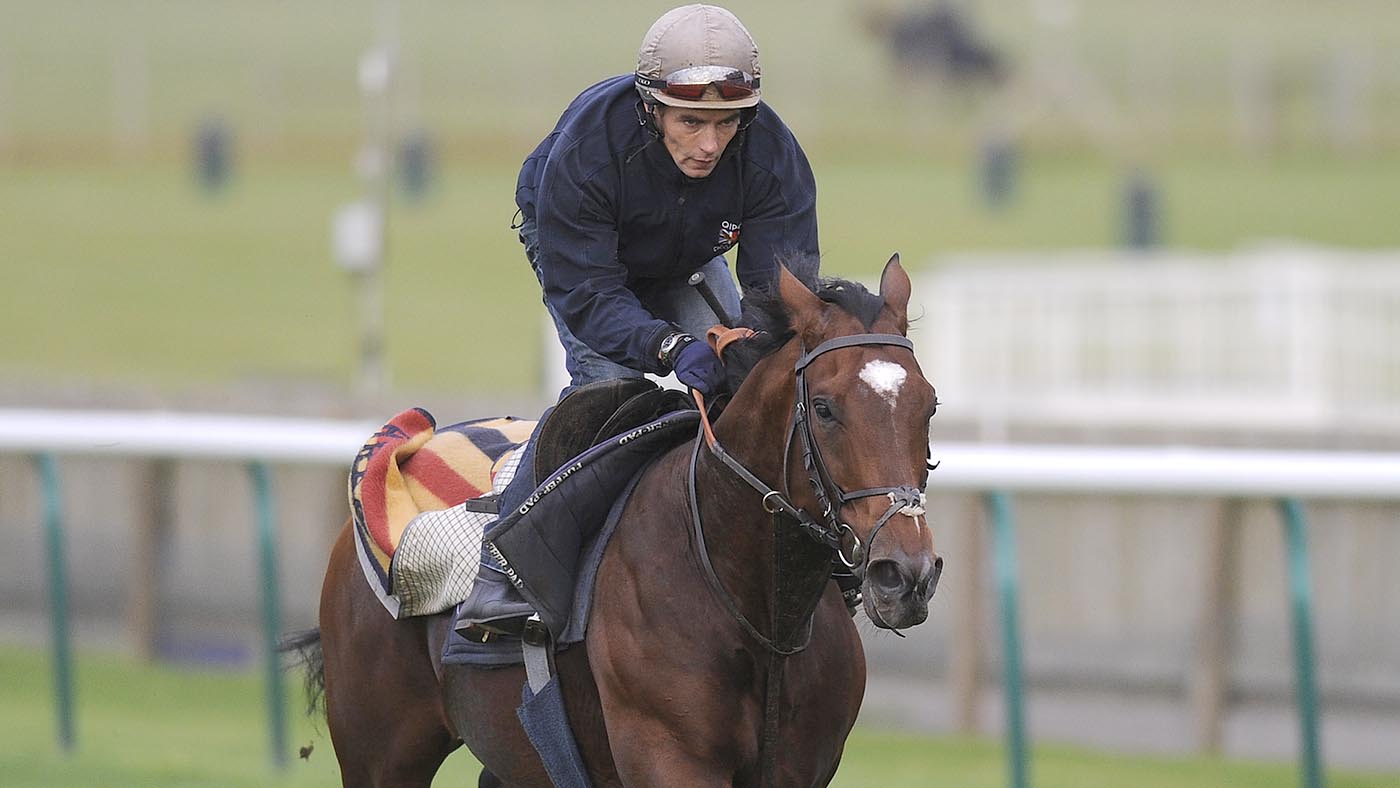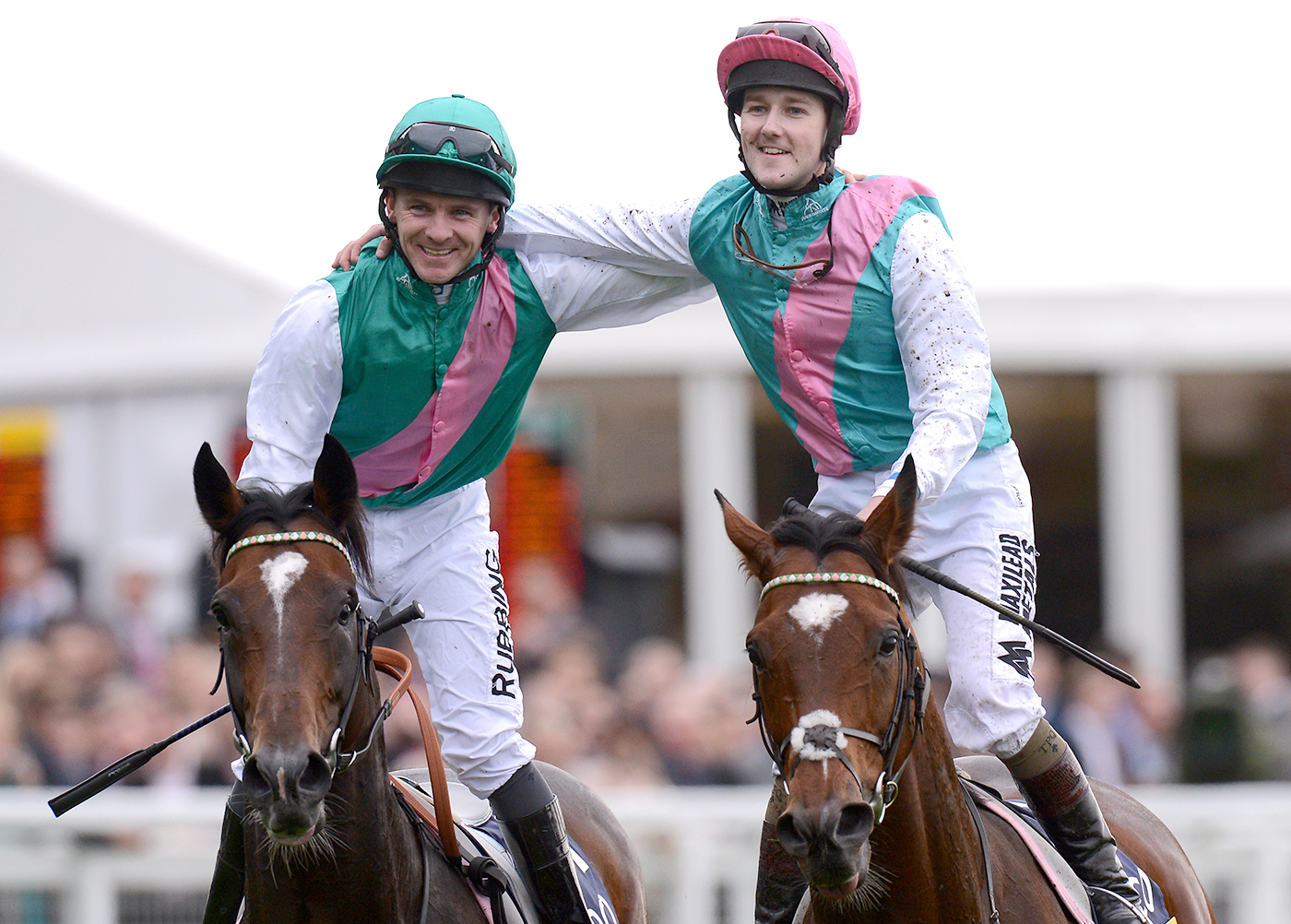Of all Flat racing’s stars, Frankel surely shines the brightest. The unbeaten son of the late, great Galileo “sustained” his trainer Sir Henry Cecil as he reached the end of his life. Julian Muscat tells Frankel’s incredible tale...
Frankel was a racehorse for the ages, an equine comet who scorched the turf over which he galloped with a distinctive blend of power and grace. Yet he was only half of the story.
Although the colt’s unblemished record speaks for itself, his tale is umbilically connected to the man who trained him. Sir Henry Cecil was on the ropes before Frankel arrived at his Warren Place stables in January 2010. The former Titan of his trade was beset by a virulent stomach cancer and the concomitant belief among his owners that he was spent. The man with 24 British Classic winners to his name had surely trained his last.
Frankel was Sir Henry’s final flourish in a heart-warming show of defiance from the man whose life outlasted Frankel’s racing career by just nine months. Some maintained that the stress of training such a great racehorse was also killing him but his wife insisted otherwise.
“I think Frankel sustained Henry,” says Jane Cecil. “I think the challenges helped to keep him alive.”
And what careers they were: Henry the champion trainer 10 times; Frankel unbeaten in 14 starts. They were made for each other. Their union was orchestrated by Khalid Abdullah, the Saudi prince who bred Frankel. Khalid was one of just two long-standing owners at Warren Place who kept faith when Henry’s numbers dried up.
“It was also about the timing,” reflects Teddy Grimthorpe, Khalid’s racing manager. “If Frankel had been foaled two years earlier he probably wouldn’t have been sent to Henry, who was at rock-bottom then. Two years later and Henry probably wouldn’t have been well enough to receive him. Their respective stories were compelling enough individually; together it was irresistible.”

FRANKEL’S name is rooted in another act of defiance against the curse of cancer. Bobby Frankel was Khalid’s principal US trainer, who fought a long battle with the disease until he succumbed in November 2009. Khalid was determined to name one of his finest young home-breds after the man who helped Juddmonte to win 16 Eclipse Awards.
Every effort was made to appropriate Frankel’s name to the right horse. And it just so happened there was a standout specimen in Juddmonte’s yearling crop in 2009. He was a bay son of Galileo with four white socks and a heart-shaped white smudge on his forehead.
“Come July of his yearling year and we thought: ‘Hello,’” relates Teddy of Frankel. “Practically anyone could see it, and it made the heart jump the first time we put a saddle on him. I told Henry about him before he’d even seen the horse, but that wasn’t just my clever opinion. He was an imposing, dominating horse generally.”
It is common currency when breeding thoroughbreds that the best of them grow up all but unnoticed. They are never ill, they are not wilful, they keep themselves to themselves. Frankel conformed in this respect, but it was soon obvious he had an extra dimension when he started working as a two-year-old.
“There was a real buzz ahead of his debut,” recalls Jane Cecil. “On the Limekilns shortly before his first race he galloped with a three-year-old rated in the 80s and left him for dead. He drew clear by 20 lengths. Everyone who saw it could hardly believe their eyes.”
Frankel started as he meant to continue. He duly obliged on his debut, beating a horse, Nathaniel, who would win the King George and Queen Elizabeth Stakes as a four-year-old. He won again from two outclassed opponents at Doncaster before he delivered the first sign of his brilliance in public. Sent for the Group Two Royal Lodge Stakes at Ascot, he exploded under Tom Queally to win by 10 lengths.
In his next race Frankel showed a side to him that would bring the best out of Henry’s intuitive talents. Although he won the Group One Dewhurst Stakes in October to secure the accolade of champion two-year-old, he’d raced too freely after taking a bump on leaving the stalls. Having lost his temper, he fought for his head for much of the seven-furlong journey, which diluted his finishing kick. He needed to heed instruction over the winter recess if he was to fulfil his boundless potential.
The episode prompted Henry to make the first change to Frankel’s daily routine.
“Henry called me into his office one day and said he’d like me to ride the horse at exercise,” remembers Shane Fetherstonhaugh, who’d moved to Warren Place having exercised the 2005 Derby winner, Motivator, every morning for Michael Bell. “Henry wanted to teach Frankel to settle and relax in his races.”

SHANE’S tutoring over the winter seemed to have the desired effect when Frankel sauntered to victory in his prep race ahead of the 2000 Guineas. Yet Henry was in a quandary ahead of the Newmarket Classic, when Frankel and his delegated pacemaker were drawn on opposite sides of the starting stalls.
He resolved it by instructing Tom Queally to ignore the pacemaker and let Frankel bowl along at his preferred pace. What happened next took the breath away.
Frankel was four lengths clear after two furlongs and 10 lengths clear at halfway, when the galleries on the Rowley Mile held their collective breath. Frankel was surely going too fast. How could he possibly sustain such a headlong gallop all the way to the finish?
When he did, he scripted the first of many chapters that amplified his prowess. Tom was an exultant passenger as Frankel tallied by six lengths, having never seen another horse. And there was bedlam in the winner’s enclosure when Frankel and Henry were reunited.
“Everyone said the Guineas was an amazing performance but Frankel was over-exuberant early on,” Tom remembers. “He was going too fast really but I didn’t want to pull him about, so I let him go.”
After Frankel’s freewheeling display, the question was whether he would ever prove amenable to restraint from the saddle.
“That’s where Henry came into his own,” Tom maintains. “People don’t understand just how exuberant the horse was at home. They did an amazing job to turn him into the ultimate pro he became.”
Indeed, so calming were Shane’s soft hands that Frankel came close to losing his unbeaten record next time out at Royal Ascot. He relaxed easily into his stride early on, to the extent that Tom wasn’t convinced the real Frankel was beneath him. Yet when he asked Frankel to close on the leader at halfway, the horse caught fire. He led around the home turn and strode clear, but his mid-race exertions took their toll. Frankel was gasping for air when the winning post came just in time for him to resist Zoffany by three-quarters of a length.

THESE early races were the making of Frankel, who was never threatened thereafter. Subsequent events would illustrate Henry was right on the money in resisting the lure of running in the Derby. The horse was a work in progress; one false step and the natural enthusiasm that fuelled his turbines might have evaporated for good.
“Horses like Frankel who give so much in the mornings invariably go the other way after a while,” says Shane. “They reach a point where they don’t want to do it any more. It becomes too much like hard work, but I can’t remember a morning when Frankel didn’t want to do it on the gallops. His spirit remained intact.”
Tom learnt a valuable lesson at Royal Ascot. Frankel’s compliance early in the race made him wonder whether the horse was not quite himself when, in fact, Frankel was heeding Tom’s command to relax. The colt was now growing up. There would be no more extravagant, mid-race moves of the kind that had almost cost him at Ascot.
It also afforded Tom more options in terms of how to ride him in his races. At Goodwood next time, in the Sussex Stakes, Tom felt confident enough to make the running at a sensible pace before Frankel drew away to tally by five lengths. And in the Queen Elizabeth II Stakes, which rounded off the horse’s three-year-old campaign, Tom restrained Frankel before the colt burst through to win by four.
Frankel the legend was now in the making. He’d won all nine of his starts by an aggregate of more than 45 lengths. He would have a valedictory season in which to cast himself as an all-time great. Yet while Frankel went from strength to strength, Henry’s health was visibly wilting. The treatment prescribed by his doctors became increasingly debilitating.
Then, out of nowhere, the whole project was in jeopardy. In April 2011 Frankel returned from morning exercise having struck into the tendon on his off fore.
“He flinched when I sponged down his leg,” Shane recalls. “That wasn’t a good sign. I could see a mark on the back of his leg, and while I’m no expert, I’d seen it enough times to know it was usually game over.”
The injury proved superficial, and was reduced to a footnote when Frankel reappeared in the Lockinge Stakes at Newbury. Despite having missed some work he trounced his old foe, Excelebration, by five lengths. He was back on track.

MOST horses would linger forever in the memory of what Frankel did at Royal Ascot on his next start. He cruised up to Excelebration before running clean away from him, this time by 11 lengths, to win the Queen Anne Stakes. Yet this was merely an appetiser for the Juddmonte International at York, a racecourse close to Henry’s heart.
For many years Henry and his twin brother, David, ran Cliff Stud in God’s own country. The stud was owned by Henry’s father-in-law, Sir Noel Murless, and was full of happy memories. Henry stayed there every year for the Dante and Ebor meetings in May and August.
But times had changed. When David died of cancer in 2000 it left his twin feeling helpless. Now Henry was struggling: he’d missed Frankel’s Sussex Stakes stroll and was advised not to travel to York, having spent three days in hospital the previous week.
“His consultant told him not to go but there was absolutely no way he was going to miss the International,” Jane recalls. “He had a special affinity with the people of Yorkshire.”
On raceday Henry looked as frail as Frankel looked imposing, yet he savoured what he could. Having lunched on grouse with Khalid, whose Juddmonte Farms sponsored the International, Henry was given a rapturous ovation after Frankel returned to the winners’ enclosure. Some felt Frankel was vulnerable on his first essay beyond a mile but the colt was imperious. Tom’s voice rises an octave as he recalls how Frankel put the likes of Farhh, St Nicholas Abbey and Twice Over to the sword.
“It was definitely the most fun I had on him because I was able to toy with the opposition,” Tom relates. “I could have ridden him on a silk thread that day.”
There was room for one last start before Frankel’s retirement. Henry backed away from the Prix de l’Arc de Triomphe, over a mile and a half, in favour of the Champion Stakes, reasoning that October heralded the onset of heavy ground that would blunt Frankel’s speed. Even then, however, incessant rain played on Henry’s nerves.
“Champion Stakes day was horrible,” Shane recalls. “Henry told me two days before the race he’d prefer not to run Frankel, but felt he had to. There was huge pressure. People were coming from all over the world to see Frankel; how could he not run him?”

Shane’s mood didn’t improve when Frankel fell out of the stalls, in the process getting some way behind Cirrus Des Aigles, his most dangerous foe. But when Tom summoned him Frankel unleashed a quality he’d rarely been required to demonstrate.
Courage, rather than natural brilliance, was at a premium in the testing ground, and Frankel showed it in abundance. Here was an outstanding champion, a horse undaunted when fate was unkind and utterly supreme when fate smiled upon him.
“Henry got his confidence back after the hard times, when he suffered all sorts of setbacks,” Jane remembers. “All the skill he’d built up over the years helped him to make the right decisions where Frankel was concerned. The horse came along at the right time.”
As for the overarching memory of the thoroughbred, Teddy captures Frankel’s impact on those close to him in eloquent terms.
“Frankel dominated all of our lives,” he says. “I went to Saudi Arabia last year, which was eight years after Frankel retired, but he was the only thing the Saudis wanted to talk about.
“And when Frankel was in training, there wasn’t one time when I spoke to Prince Khalid that we didn’t talk about Frankel. I’d say that he cantered today, or worked well or whatever he’d been up to. Everything began with Frankel. He became all-consuming.”
Frankel’s origins
Bay colt, foaled 11 February 2008
Breeding: by Galileo out of Kind, by Danehill
Owner: Khalid Abdullah
Trainer: Sir Henry Cecil
Breeder: Juddmonte Farms Ltd
Jockey: Tom Queally
Frankel is the best produce of Galileo, the champion sire in Britain and Ireland 12 times to date, and destined to overhaul his own sire Sadler’s Wells’ record haul of 14 titles posthumously. Frankel’s dam, Kind, won six from 13. Kind has also thrown Frankel’s Group One-winning full-brother Noble Mission, and Group-winning three-part brother Bullet Train.
Frankel resulted from an annual arrangement between Khalid Abdullah’s Juddmonte Farms and Coolmore Stud, whose late signature sire, Galileo, bred to between five and 10 Juddmonte mares each year. Yearlings from these matings were shared between the partners, with each taking turns to have first pick. It was Juddmonte’s good fortune to have first pick in 2009. But for that, Frankel would almost certainly have raced in the silks of Coolmore’s John Magnier.
Frankel’s race record
Won all 14 of his starts and £2,998,302 across three seasons from 2010, including:
2010
Dewhurst Stakes, Newmarket
2011
2000 Guineas, Newmarket
St James’s Palace Stakes, Royal Ascot
Sussex Stakes, Goodwood
Queen Elizabeth II Stakes, Ascot
2012
Lockinge Stakes, Newbury
Queen Anne Stakes, Royal Ascot
Sussex Stakes, Goodwood
International Stakes, York
Champion Stakes, Ascot

UNLIKE many great racehorses before him, Frankel retired after an unblemished racing career. This only adds to his allure: 88 horses were ranged against him and none was able to take his measure.
“We always had that fantastic confidence in Frankel,” says Teddy Grimthorpe, racing manager to the horse’s owner, Khalid Abdullah. “You never wanted to say that he’d have to get knocked over twice by a bus to get beaten, but it was hard not to feel that he was going to win every time.”
- Have you seen Frankel in the flesh? Tell us your favourite memory of the great horse at hhletters@futurenet.com
This exclusive feature is also available to read in Horse & Hound magazine, on sale Thursday 22 July
You may also be interested in…

Frankel is a stunning 2000 Guineas winner
Henry Cecil wins a 25th British Classic race with the phenomenal colt Frankel

Thirteenth win for unbeaten wonder horse Frankel
Frankel took his unbeaten run to 13, winning the Juddmonte International at York

Frankel gets his own bar at Newmarket
Frankel is being honoured with his own mini museum and bar at Newmarket’s Rowley Mile racecourse

Frankel’s first filly born in Newmarket [pics]
Frankel's second foal — this time a daughter — has been born at the National Stud

First Frankel foal sells for £1.15m
The first foal by Frankel to be sold at auction has been bought for £1.15m

Frankel gets his own range of merchandise
Unbeaten racehorse Frankel now has his own range of merchandise

The Queen unveils Frankel statue at Royal Ascot
A bronze statue of Frankel was unveiled by The Queen on the opening day of Royal Ascot
Horse & Hound magazine, out every Thursday, is packed with all the latest news and reports, as well as interviews, specials, nostalgia, vet and training advice. Find how you can enjoy the magazine delivered to your door every week, plus options to upgrade your subscription to access our online service that brings you breaking news and reports as well as other benefits.
